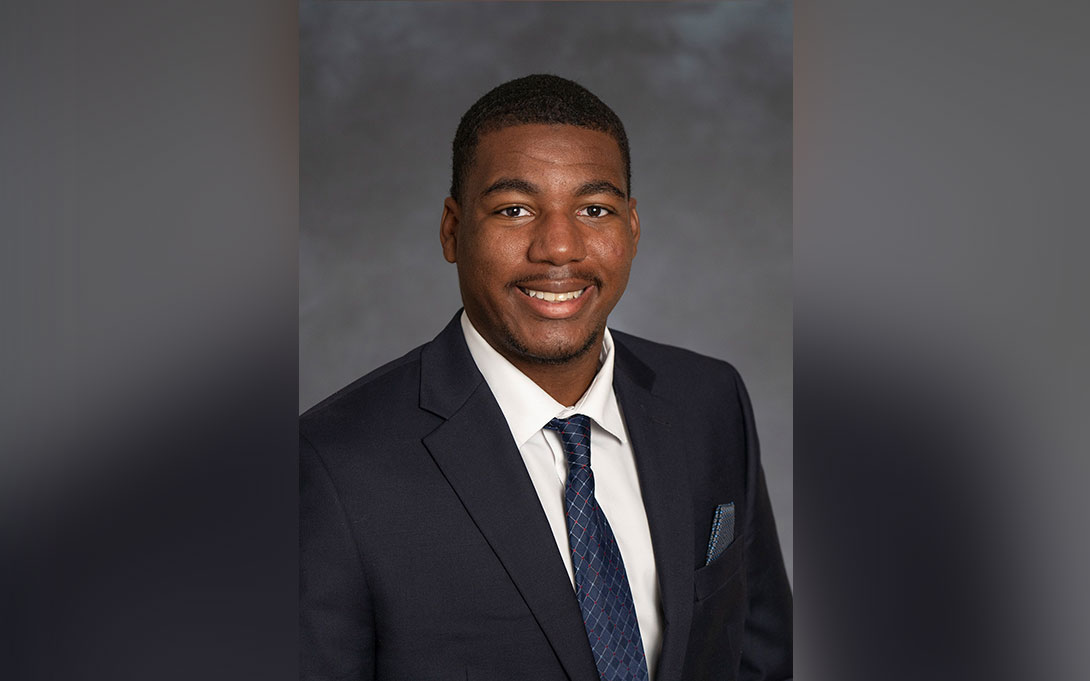
Research analyst Sam Owusu recently worked on a project, which surveyed every school district in the state of Michigan about the availability of early childhood programs. It is a part of his job as a research analyst at the Education Policy Initiative (EPI) – gathering empirical data to inform policy recommendations. It was a big task, as Michigan has over 800 individual school districts.
He heard stories in his conversations with districts that they felt that often they weren’t being heard by the state. Some districts love to participate in research and others are hesitant.
“And so I thought about how that is a case where policy negotiation is important and speaking to an audience outside of your own is extremely important,” he says. “That flipped a switch for me. As a person who cares about relationships, I know that to be effective you have to look beyond just evaluating a program, or finding spending efficiencies. If the relationship isn’t there, it leads to friction in terms of policy goals, or a misalignment between stakeholders.”
Having been a participant in the Public Policy and International Affairs (PPIA) program at the Ford School when he was in college, and then working at EPI, it was that realization that impelled him to come full circle and continue his career in education policy and enroll in the Ford School’s MPP program, which he will begin in September 2023.
He was interested in education all his life, as his grandparents, whom he never met, were legendary teachers. Hearing about them, and seeing his mother’s work combining faith as a minister with teaching in prisons, inspired him.
At Davidson College, he pursued that interest, working with a mentor who showed him that
making education policy is a negotiation process. “There’s not always a right answer. There are optimal solutions; there are alternatives; and there are constraints,” he notes.
That led him to seek opportunities to boost his understanding of policy making, so he applied to PPIA, and got placed at the Ford School, his first choice. Sadly, it was the summer of 2020, so COVID forced him to experience the program virtually.
“I remember this course from Robert Hampshire. We spent a whole module, a whole two weeks, talking about sidewalks. I guess it taught me that policy is personal,” he recalls.
Upon graduation from Davidson, he was immediately involved in research, as part of a study of institutional behavior at colleges and universities amid COVID. “We studied everything from masking and vaccine plans to whether colleges had technology concerns. We would do things like a large scale data collection of using university websites to learn more about how colleges were behaving.”
That work caught the eye of Kevin Stange who encouraged Sam to apply for a full time role at EPI.
His experience in doing research has deepened his belief that education policy is personal.
“One way or another, we all go to school. And one way or another, we're all learning in some school building at some point. There's financial policy that impacts us; there's teaching and learning policy that impacts us; There are all of these different decisions that folks make that impact our educational trajectory.”
“Even working on heavy quantitative data analysis, working with large administrative datasets, you're not necessarily working with people, but those data points are stories, right?”
“Now I can sort of see it coming full circle that I'm coming back as a student, to study for my MPP because I think that's what you get out of the MPP degree, especially at a place like the Ford School where you get the context of policy knowledge and also get the methodology to rigorously evaluate if it's effective or not.”
With his MPP, Sam wants to establish himself between policy, practice, and academia.
“Ultimately, whether I'm working in policy research at the state or federal level or working with teachers to evaluate curricula or working in a school district, the public policy degree will give me the skills both soft and analytical to speak to these different audiences.”
“We do live in an era of mistrust, data insecurity, and information overload. People are stressed about time, stressed about information and, and don't trust each other as much. And I think you just need trust to make effective policy.”
